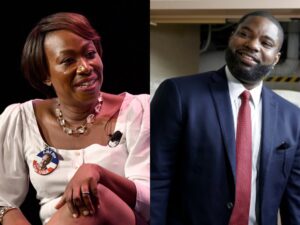Jews should celebrate their heroes and warriors — they’re going to need them


Since Hamas’ vicious attack on Oct. 7, I’ve spent time in both Israel and the United States. And I’ve noticed a fundamental difference in how the horrific events of that day have been covered.
In Israel, about a quarter of the news stories were not about victimhood, but heroism.
They included incredible tales of ordinary Israelis:
- A bus driver who went back and forth into the music festival, risking his life to get as many people out as possible.
- A grandfather who learned his son and grandchildren were holed up in a safe room as terrorists rampaged the town, grabbed a gun and drove there to lead the charge that freed them.
- A woman who found a way to keep the terrorists at bay by offering them food and drinks, delaying her certain death for just long enough to allow the IDF to rescue her.
We heard the stories of elite soldiers who fought on that first day. Israel’s Channel 12 interviewed four commanders of the Egoz commando unit, all in their 20s.
Their faces were masked to maintain operational security, but we could still see the steel in their eyes as they described, in the matter-of-fact way of military men, how they stepped over their commander’s injured body on a stretcher, charging forward as fast as they could.
“We wanted to make sure that if the terrorists encountered anyone, it would be us rather than civilians,” one said.
Another was asked what the nation could do for them. “We want you to stay strong and united behind us. Because that’s the strength of our people.”
A third was asked how he imagined the future.
“I look at these burned-out kibbutzim, and I imagine them rebuilt, thriving more than ever before,” he said. “That’s what we’re fighting for.”
These stories have been a source of immense strength for Israelis. But they are not exactly new.
This heroic element is deeply rooted in Israeli culture.
We have always studied the biblical heroes in school and revered the pioneers and warriors of the pre-state era.
Even our Holocaust day is officially called “Remembrance Day of Holocaust and Heroism,” its official ceremonies including reference to the ghetto uprisings, the partisans and others who fought back.
American Jews, for a very long time and for complex reasons, have largely avoided heroism as a Jewish value, however.
For decades, I heard American Jews deride the Israeli heroism idea as a distasteful kind of “machismo” or “militarism.”
American Holocaust museums and cultural products tend to focus almost entirely on Jewish victimhood.
The hope, it has been explained to me, is that by showing the world what happened in Nazi Germany, we could help America avoid the kind of bigotry, racism and intolerance that led to such horror.
It’s not clear that the erasure of Jewish heroism from American Jewish life can be sustained after Oct. 7.
Here in America this month, I’ve seen a Jewish community stunned by the calamity, even as it began mobilizing to help Israel through a thousand different channels.
So many spoke of shock, loneliness and fear — not just because they identify deeply with Israel and have personal connections there, but also because of the sudden outbursts of antisemitism raging across American cities and college campuses, and the expressions of support for Hamas coming from people they thought were their friends.
But while some have mobilized, a large number of US Jews today remain gripped in fear and confusion.
Generations of antiheroic teachings about Jewish identity have resulted in many Jews simply lacking the warrior instinct needed to confront the hate they now face.
There is, it seems, an acute need for inspirational stories of Jewish courage, sacrifice and overcoming — a need not likely to disappear any time soon.
In a newly published collection called “Jewish Priorities,” which I edited, the philanthropist Michael Steinhardt, a founder of the Birthright Israel program and author of the 2022 memoir “Jewish Pride,” proposes a “pantheon of Jewish heroes” to be created in the United States, which would choose a number of heroic figures from across Jewish history and build around them exhibits, institutions, and educational curricula.
Young Jews, he writes, “need to know it is possible, even desirable, to care about being Jewish so much that it is worth sacrificing for, taking risks for, fighting for — even dying for.”
American Jews need this. For while Israel may destroy Hamas in Gaza, the forces of antisemitism that have been unleashed around the world will not go away — and Jewish communities will be increasingly targeted.
They will need immense spiritual resources for what may become a generational battle for their own security and legitimacy.
They will need the comfort, strength and exemplars that only a robust education in heroism can provide.
David Hazony is the editor of “Jewish Priorities: Sixty-Five Proposals for the Future of Our People” (Wicked Son, 2023). He lives in Jerusalem.







